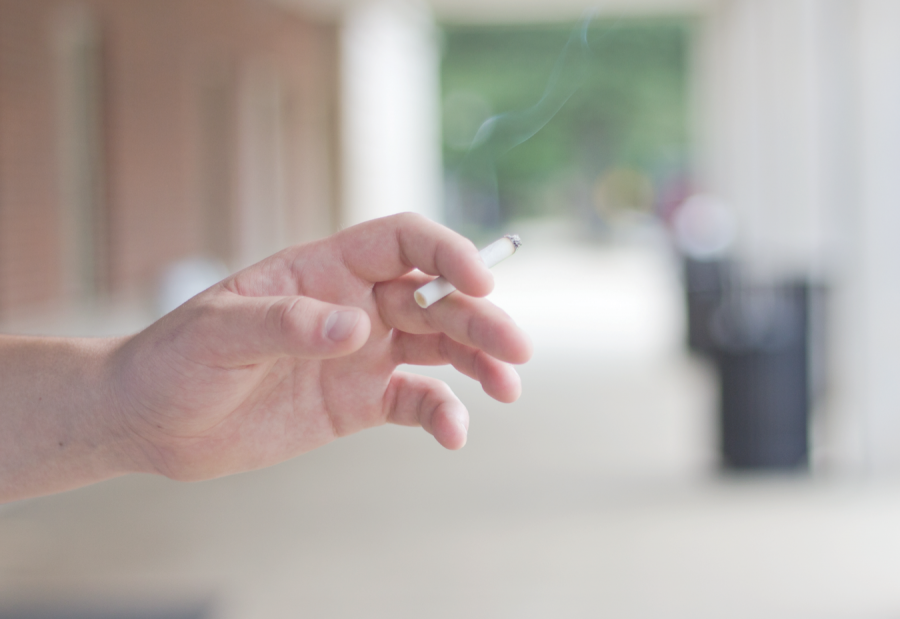At the start of a new semester at The University of Alabama, autumn and football are not the only things in the air. As a new freshman class embraces campus, the debate between the right to clean air and the right to smoke still remains.
If the University were to implement such a ban, it would be joining a group of other state universities that have already taken similar measures. Auburn University recently banned all smoking on campus starting Aug. 21, Alabama State University’s president, William Harris, recently banned the use of all tobacco products on campus and Troy University has been tobacco-free since August 2012.
Zac McMillian, a junior majoring in management information systems, has been working toward a campus ban on smoking and tobacco products since his freshman year.
“I was a First Year Council representative of Ridgecrest South, and someone asked, ‘Do you think there’s anything we can do about the ring of fire,’ which is the courtyard out front where a lot of people smoke,” McMillian said. “It kind of blew up to not only what we could do about Ridgecrest South, but what we could do about the entire campus.”
An attempt to pass a smoking ban in the SGA failed in the senate last spring. semester. McMillian said a small but vocal group of senators opposed the ban as a matter of rights.
McMillian said he believes Auburn’s new ban could make the difference for high school seniors deciding whether to attend Alabama or Auburn.
“It puts pressure on The University of Alabama because generally, from a recruitment standpoint, people doing college visits will go and visit Auburn or Alabama, and the next day go and visit the next college,” McMillian said. “As they’re walking, especially by B.B. Comer and the Ferg where every student will walk, they walk through a cloud of smoke, and then the next day go to Auburn, and not a single person is smoking. It might be a minor difference, but it could really affect how someone chooses their university.”
While most of the other bans across the state were implemented by university administrators, Alabama administrators so far have not taken similar executive actions.
“The deans and Dr. Bonner as well said they want to leave it up the students and the SGA,” McMillian said.
University spokeswoman Cathy Andreen said some campus organizations are still considering what action to take, if any.
“The Faculty Senate, the SGA, the Professional Staff Assembly and other groups are currently evaluating whether they should recommend that the entire campus be smoke- and tobacco-free,” Andreen said.
The most recent data on smoking at the University comes from a spring 2012 study. According to the study, about 10 percent of UA students smoke. But McMillian said the number of smokers isn’t the reason he is pursuing a ban.
“The thing that kept me on the issue is not how many people smoke, but how smoking increases when they come to campus,” McMillian said.
According to the study, about 6 percent of students smoke when they are freshmen. When they are seniors, about 16 percent do.
“What we want to do is not necessarily prevent people from smoking, but prevent people from picking up the habit, which will affect them for the rest of their lives in a negative way,” McMillian said.
With the backing of many campus organizations and pressure from other universities, McMillian said he is hopeful a ban will come.







